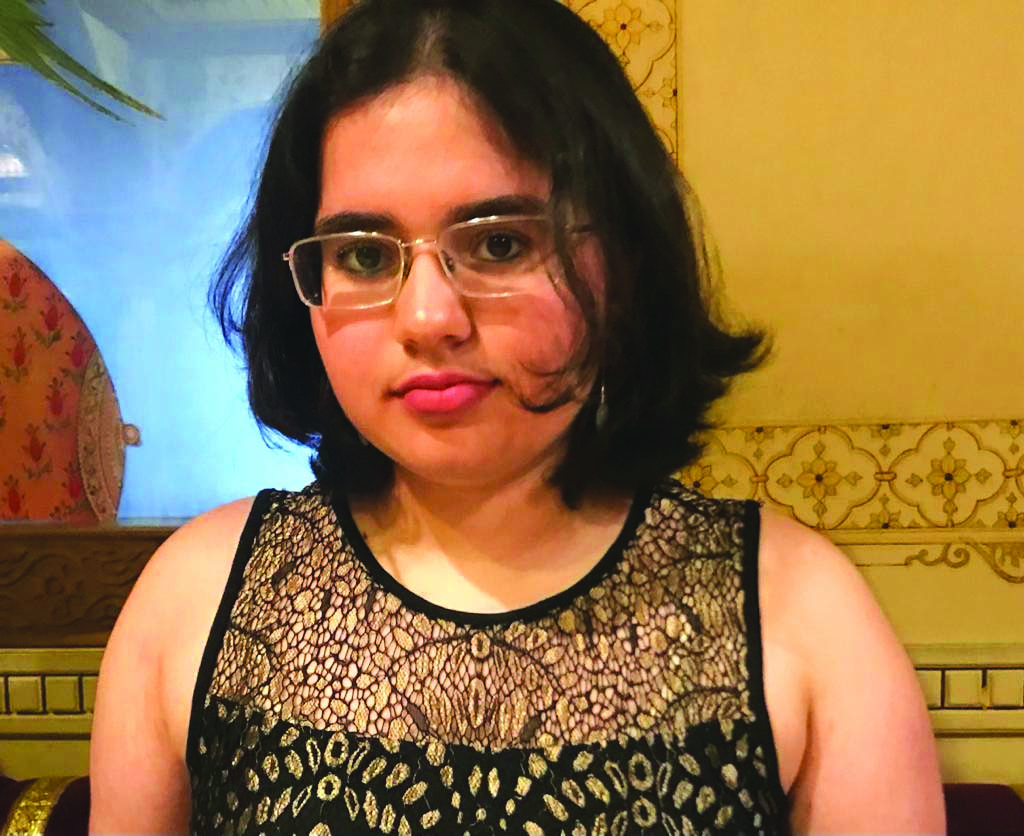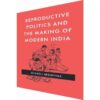Incremental popularity of the gap year
Although currently taking a gap year is an upper class privilege, not a few teens from middle class households are becoming aware of the importance of life skills and internships acquired in a break that enrich higher education and develop competencies that are valuable in adult life, writes Abhilasha Ojha

Gap year students: Western fad or enriching break?
Though a relatively new phenomenon in India, a small but increasing number of higher secondary and college students are opting to temporarily step out of the academic continuum, now raised to 19 years, and take a gap year — a year-long break after school or college/university — to pursue travel, sports, cultural interests, voluntary service or discover life’s purpose.
Aaliyah Kashyap (21), daughter of celebrated Bollywood film director Anurag Kashyap, is one of them. In an emotional video on her YouTube channel, she recounts her experience of taking a gap year from Chapman University, California. Posted in September 2021, Aaliyah opens up about her difficulty in adjusting to a new alien environment and suffering anxiety and depression. In another video, posted a few months later, Aaliyah reveals how taking a gap year and returning to India to bond with family and friends and pursue her creative interests was a regenerative experience that enabled her to find her true calling in fashion marketing.
Although currently taking a gap year is an upper class privilege, not a few teens from middle class households are becoming aware of the importance of life skills and internships acquired in a break that enrich higher education and develop competencies that are valuable in adult life. The value of work experience is acknowledged by the National Education Policy (NEP) 2020 which provides for multiple entry and exit options in higher education. In a radical break from past practice, it permits students in higher education to exit after one, two and three years before resuming the four-year degree programmes now mandatory under NEP 2020. An online Academic Bank of Credits records certification at every stage.
The popularity of the gap year is likely to increase now that three years of ECCE (early childhood care and education) have been added at the beginning of formal education and one year at the end of higher education. There’s every likelihood of exhaustion, if not burn out, during 19 years of education.
Anushka Bellani, a graduate of the Heritage Xperiential Learning School, Gurugram, who topped her school in the humanities stream (98.8 percent) in the 2020-21 CBSE class XII exam, opted for a gap year because she was “desperate for time off from the academic drill”. “Twelve years of academic routine had demotivated me. I realised, it was time to give myself a break. There was a period of confusion in my mind, which was amplified by the deadly second wave of the Covid-19 pandemic. Online classes, lockdown restrictions, and inability to meet friends stressed me out. Taking a gap year sounded like a great idea to calm and rejuvenate myself,” says Bellani, who was admitted into the University of British Columbia, Canada last year but opted for deferred admission. She will begin her term this September.
To take her mind off routine academics, Bellani volunteered for two weeks with an NGO in Sri Lanka through Plan my Gap Year, UK, an awards-winning voluntary services organisation. “I spent two weeks in Sri Lanka where I worked for a renovation project of community buildings and as an English teacher. These were enriching learning experiences which boosted my self-confidence. Now I feel like I can chase the clouds if I want to,” says Bellani.

Ruhee Mehta, a science stream higher secondary student of Sri Kumaran Children’s Home, Bengaluru, was encouraged to take a gap year by her parents, both frontline doctors during the pandemic. “As a science student, I was struggling with a packed schedule of online assignments and tuitions, and pressure to excel. I was tired all the time. Fortunately, my parents encouraged me to take a gap year. At the same time, I realised that I could waste the gap year if I didn’t quickly fall into a routine to make the most of these precious months. I made a list of everything I wanted to achieve and enrolled in a yoga teachers’ training course and later started conducting online yoga classes. I also interned with a wellness retreat. These involvements were valuable learning as well as healing experiences. To have continued to undergrad education would have been stressful,” says Mehta.
Undoubtedly, preparation for the all-important school-leaving class X – and especially class XII – examinations in which rote learning and memorisation skills are given high importance, drives children too hard. With admission cut-offs demanded by the country’s few dozen high-quality colleges and universities having risen sky-high, the pressure on students to score high grades in board and national competitive exams, is intense.
[userpro_private restrict_to_roles=
Inevitably, within the great majority of middle class households, the gap year is viewed as a Western fad and a wasteful break in the education continuum. “Taking a gap year may be common in the West but in India, even discussion of the subject is taboo. When my son took a gap year, there were so many people, including members of my own family, who were highly critical. Barbed comments about over-indulgence and my son wasting his life were commonplace. To the extent that I became nervous about his friends attending college, while my son was cooped in his room binge-watching Netflix. In such moments, I also wonder if supporting his gap year request was the right decision,” comments a Delhi-based homemaker and mother of an 18-year-old who two months into his gap year is yet to decide on his future course of action.
In a society where detention of children for under-per formance in a class/grade has gone completely out of fashion — the RTE Act expressly forbids detention of children in primary/elementary classes under any circumstances — allowing children a gap year with a good chance of it being frittered away in activities of no academic consequence (co-curricular and/or sports education) is a pervasive fear even in liberal households.
Madhulika Makar, whose son Sidarth took a gap year after completing class XII in 2019, recalls high anxiety after the gap year began. “Post 14 years of non stop studies, Sidarth was experiencing burnout and complete lack of self motivation. While I and my husband had no issues with a gap year, a complete lack of plan and direction was unnerving. The first few months were turbulent and forced us to grow as parents exercising emotional control, patience and willingness to step back . As I look back I am amazed at the initiative, commitment and hard work Sidarth displayed. He completed an Everest Base Camp trek, self-taught himself to trade in derivatives and even hired interns to run projects for him. He was so much more sorted by the time he applied for college admissions after a year. That said a gap year must have a broad plan of action while allowing children to find their own direction,” advises Makar, promoter of a Delhi-based executive search firm.

Makar (right) & Sidarth (left): action plan recommendation
The gap year first became popular in the West in the mid-1960s when widespread disapproval of America’s Vietnam war prompted legions of college and university students to take time off to organise street and campus protests against the war. Although it went out of fashion in the 1980s when students became focused on careers and opportunities in the ICT (information communication technologies) and venture capital Wall Street careers, in the new millennium when awareness of the threat of climate change to the global order became widespread, taking a gap year to address this grave problem has become popular again. Celeb “gappers” include Princes William and Harry in the UK, and Malia Obama in the US.
Adarsh Khandelwal, co-founder and director of Collegify, an education services company specialising in facilitating student admissions into foreign universities and inventing e-learning products, is a strong proponent of the gap year. “The linear academic journey is not the only one… As modern students’ progress from grade to grade, there is a greater emphasis placed on holistic development… including soft skills, technical competency, real-world experience via internships or projects, research chops, social involvement, entrepreneurship — an understanding of what life entails outside the classroom. We may still be stuck in the past. A pedagogical system that focuses heavily on rote learning does not provide ample exposure to real-world interactions and initiative-taking. Parents and students need to work together to instil a culture conducive to the gap year, particularly now when opportunities are ripe and there is potential for so much progress, even if it is digitally-based,” wrote Khandelwal in an op-ed essay for the Economic Times (August 21, 2021).
With post-independence India’s moribund K-12 education system having totally neglected vocational and skills education, in the new millennium following greater awareness of the importance of balanced and rounded education, a large number of edtech companies of all shapes, sizes and genres offering a mind-boggling range of supplementary learning programmes — co-curricular, sports, adventure, ICT and life skills competencies — have mushroomed countrywide. These new genre start-ups specialise in providing resources, guidance and mentorship programmes to gappers to make the most of a sabbatical year.
Among the companies offering learning programmes for gap year students is the Delhi-based I-GenPlus (estb.2019) providing a range of short-term life skills, leadership, mentoring and training programmes for teens and young adults. “Most parents are hesitant about their child taking a gap year because they’re not sure what she will do during a 12-months break. Our programmes for gappers are carefully structured and enable them to learn critical new skills while giving enough time and space for reflection and self-discovery. These days, gap year students have access to a large number of options to acquire skills and competencies which will stand them in good stead in higher education and beyond,” says Nishtha Narang, programme manager of I-GenPlus, which offers a gap year leadership development programme for class XII students in addition to several other short-term courses. The company also has a collaboration agreement with Rishihood University, Sonipat, under which the university’s undergrad students can sign up for I-GenPlus’ enriching gap year programmes.
With the Covid-19 pandemic having prompted the Central and later state governments countrywide to ill-advisedly order all education institutions from preschools to universities to shutter for an unprecedented 82 weeks — the longest education lockdown worldwide since March 2020 — a large number of higher secondary and college/university students perforce transformed the academic year 2020-21 into a gap year. And many who had signed up for higher education abroad, deferred their admission to 2021-2022.
In a recent study, the London-based Sutton Trust found that one in five university applicants (19 percent) in the UK had changed their minds about attending university in 2020-21. In the US, a survey conducted last April by Baltimore-based consulting firm Art & Science Group, found that 17 percent of students had changed their higher education plans because of the pandemic and preferred to sign up for online professional and life skills programmes. Although data is not available, it can be presumed that a sizeable number of indigenous higher secondary and college/university students did likewise.
While the pandemic and its disruptive impact pushed several youth to write off 2020-21 and transform it into a gap year, another factor inspiring young adults to step off the non-stop academic treadmill is the new millennium phenomenon of hundreds of college drop-outs and celebrity gappers who have shaken up stock markets world over by promoting unicorn companies. A case in point is the extraordinary success story of Elon Musk, founder of Tesla Inc (annual revenue of $24.5 billion), who in a pre-university gap year travelled across Canada doing odd jobs including weeding vegetable beds and cleaning the boiler room of a lumber mill, before rejoining economics and physics classes at the University of Pennsylvania in 1992.

Eighteen-year-old Suheal Basha, a Plus Two science graduate from a modest family background — mother is a homemaker and father an artist who writes names on grains of rice for tourists in Krishnagiri district (Tamil Nadu) — has been highly inspired by new-age tech start-up success stories, especially of Elon Musk and Ritesh Agarwal, co-founder of Oyo Rooms, and has taken a gap year to “discover his true entrepreneurial calling”. “Though my parents are supportive of my idea, I know they are worried when people ask why I let go an engineering seat in a top-ranked college to take a gap year. I want to use this year to pursue a start-up idea to use technology to curb drunken driving in the country. This wouldn’t have been possible if I was full-time in college. Unfortunately, society makes one feel like you’ve committed a crime for taking a year off for yourself. I have to constantly reassure my parents that I will make the best of this year even though I do tend to feel a little lost at times,” says Basha.
Indeed child counselors and psychologists warn that the decision to avail a gap year shouldn’t be taken lightly. The feeling of being lost, lonely, and confused within an unstructured routine, can lead to a wasted year. They warn that prolonged indecisiveness and inability to get busy with purposeful activity can lead to “gap year depression”. “This is not unusual. Internal issues, not just related to academics but also personal issues like unresolved romantic breakups are likely to resurface in gaps between school and college, junior college and the undergrad years,” writes clinical psychologist Seema Hingoranay in the Hindustan Times (September 1, 2019), who advises parents and children to make the best of the gap year through “trust and mutual respect”.
When well-planned and executed with care and attention, a gap year can be a game-changer in the life of young adults trapped in the quagmire of sky-high parental expectations, academic stress, anxiety, and peer pressure. A thoughtfully planned gap year offers school-leavers an ideal opportunity to develop hands-on vocational and life skills, usually neglected in K-12 and higher education, that will not only enhance the tertiary education experience but also prove useful in adulthood careers and workplaces.
History of the Gap Year
The origins of gap year can be traced to 17th century England when young men of nobility undertook a Grand Tour of European destinations for upto three years to learn about the continent’s culture and history. Much later after World War II, many British youth devastated by the physical, emotional, and financial traumas of the war, took a gap year to rejuvenate and heal mind, body and soul. However, it was not until the 1960s that taking a gap year became popular in the West especially in Europe and the US. In the mid-1960s, widespread disapproval of America’s Vietnam war prompted a large number of college and university students to take a year off to organise street protests against the war, and later travel abroad to enable young people to exchange cultural ideals in the hope of preventing future wars.

Prince William, Malia Obama and Steve Jobs
In the 1970s, the introduction of lifestyle enterprises started the gap year industry. In 1972, Gap Activity Projects (now Lattitude Global Volunteering) was started to send British youth around the world on gap year experiences. In the US, the first gap year organization — Dynamy — was founded in Worcester, Massachusetts in 1969 with the intention of teaching young people self-confidence and community service. Since then, several organisations have sprung up to equip gappers with important life skills such as communication and collaboration, as well as vocational and entrepreneurial skills which will stand them in good stead in higher education and beyond.
A famous celeb gapper of the 1970s was Steve Jobs, the legendary founder of Apple Inc, who dropped out of Reeds College, USA to spend a year in India and the Middle East, meditating in the mountains and learning calligraphy. After he returned home, he revolutionised the world of technology with the invention of the iMac and promoted Apple Inc, currently the world’s most valuable company by market valuation.
In the new millennium, several celeb gappers have made taking a year off popular again. They include Princes William and Harry in the UK, and Malia Obama in the US. Prince William took a gap in 2000 during which he provided volunteer service in Belize and Chile, travelled to Africa and worked on a dairy farm back in England, before starting his undergraduate degree programme at St. Andrews University, Scotland. His brother Prince Harry, later followed in his footsteps, travelling to Australia and the Kingdom of Lesotho in Africa, before enrolling in the Royal Military Academy, Sandhurst.
In 2016, Malia Obama, daughter of former President Barack Obama, took a gap year before beginning her education at Harvard University. During the gap year she spent a summer as an intern at the US embassy in Spain and travelled across Bolivia and Perú in South America.
Advantages of taking a gap year
Academic
• According to the American Gap Association, 90 percent of students who take a gap year return to university within a year. Not only do they return, but their subsequent grades tend to be higher than of peers who haven’t taken a break.
• Sydney University researchers found that students who defer their academic studies after high school for at least a year, have greater academic momentum in college. This is because the gap year usually includes developmental activities — traveling, volunteering, taking informal or formal classes based on interests — that remedy “lack of academic motivation and post-school uncertainty and assists university students to develop adaptive patterns of behaviour important for academic success at university”.
• Gap year often ameliorates academic burnout with healthy choices.
• Enables identification and practice of extra-curricular interests and facilitates choice of study programme that results in a deeply invested college-to-career future.
• Re-ignites curiosity for learning through exposure to real-life situations and vocations through hands-on field work.
• Gap year takers are more likely to be supported by scholarships to engage in further civic engagement, national and international exchange programmes.
• Gap year students have the opportunity to apply 12 years of school classroom knowledge.
• Field experience and cross-cultural exposure sets gappers ahead of other job applicants.
• Universities tend to accept school-leavers with a gap year as they are more invested, better community members, and have better employability prospects.
• Gappers tend to write better admissions essays because of their immersive experiences.
Personal
• Gappers tend to have superior comprehension and competence because of cross-cultural immersion experiences.
• Better people-to-people communication skills.
• Superior problem solving skills.
• Gap year students usually have better self-knowledge and awareness of personal strengths and weaknesses.
• More likely to become life-long learners.
• Tend to be more independent and self-directed.
• Endowed with greater global perspective
(Source: American Gap Association)
[/userpro_private]
















Add comment